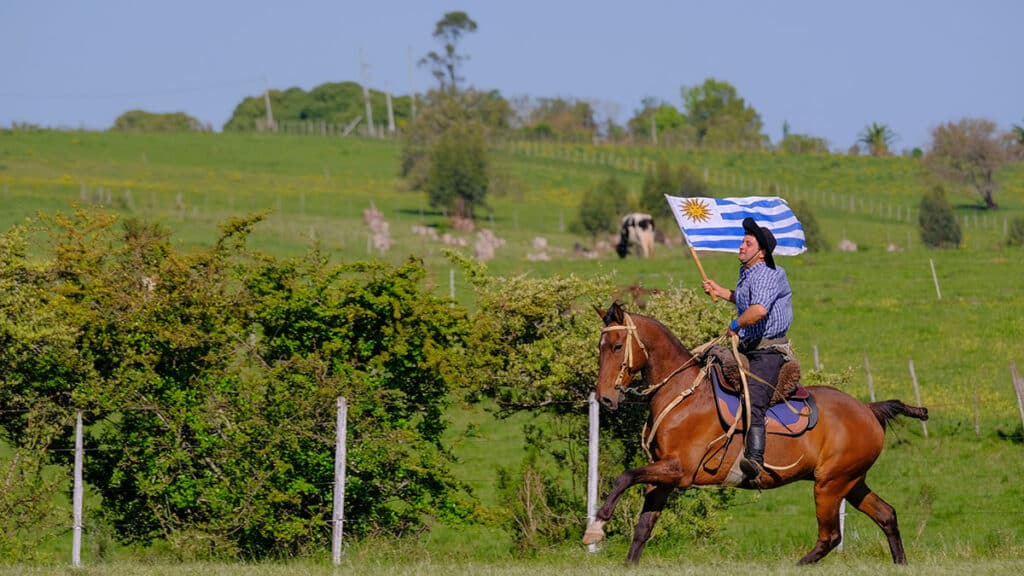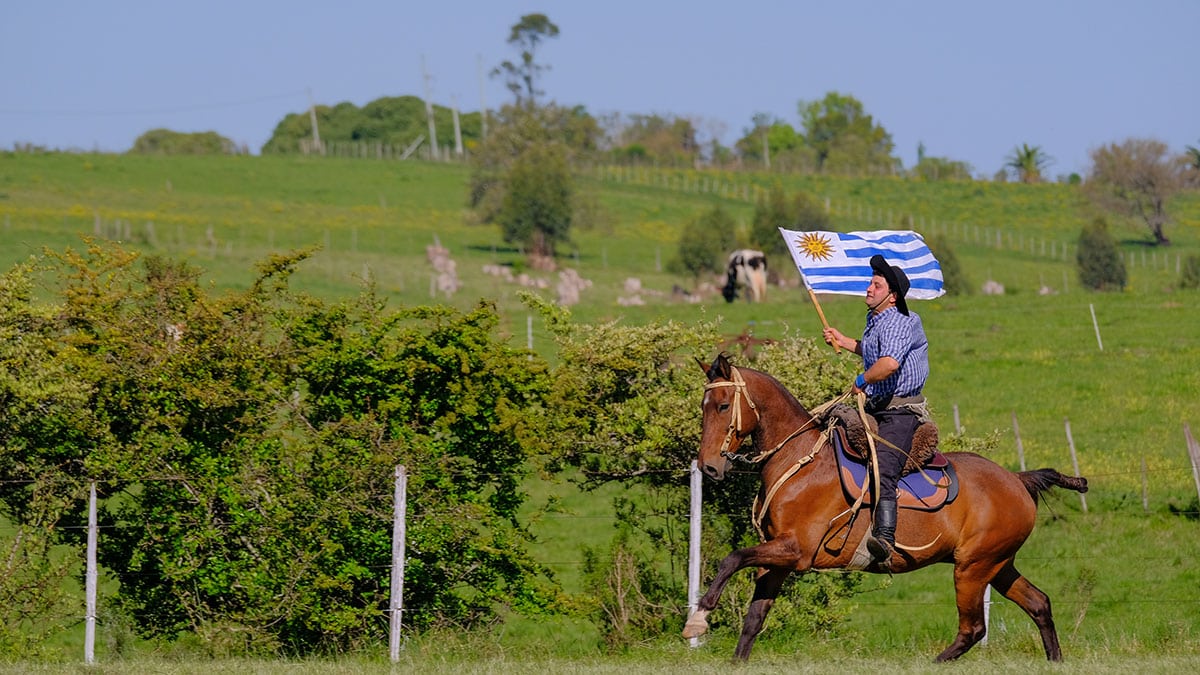Uruguayan Independence Day is August 25, 1825. It marks the day when what was then called La Banda Oriental declared independence from Brazil.
In this context “Oriental” in Spanish means “eastern,” in the same way that the Orient is east of Europe. La Banda Oriental is the east bank of the Uruguay River.
The Uruguayan Independence Day Story

The region was originally occupied by several Indigenous peoples. The Portuguese arrived in what is now Uruguay in 1512. The Spanish arrived in 1516.
The region became a frontline in the power struggle between the Portuguese and Spanish, and later Argentines and Brazilians. They were not Argentines yet because modern South America was still forming.
The trigger for the independence of countries in Latin America was the collapse of the Spanish monarchy in the Napoleonic Wars (1803–1815). When Spain became ruled by the French, first Criollos (American-born Spanish) and later Americans (the Latin mix of Native, European, and African) took the opportunity to seize power.
On August 25, 1825, a group called the “Thirty-Three Orientals” led by Juan Antonio Lavalleja and Manuel Oribe declared independence from Brazil. They were supported by forces from Buenos Aires.
The struggle between the Argentines and Brazilians continued. The modern state of Uruguay was established through the Treaty of Montevideo in 1828.
The culture of modern Uruguay is an interesting blend of Argentine culture in Spanish and Brazilian culture in Portuguese. But Uruguayan culture is something unique all by itself. ¡Viva Uruguay!

